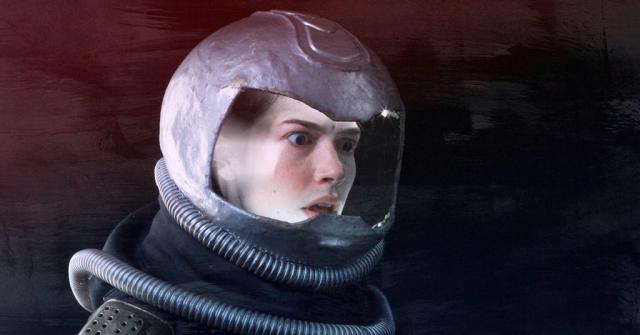

The bunker drama—more specifically, the post-Armageddon bunker drama—has been a staple of speculative allegories since the bombing of Hiroshima ushered in the Cold War era, but science-fiction nerds smugly anticipating a stroll through well-mapped territory are hereby warned that just because playgoers may have watched a few episodes of “The Twilight Zone” doesn't mean they're home free (a phrase that will take on increasingly ominous connotations). To begin with, the setting is a British space station located on the surface of Pluto—our galaxy's furthermost planet, discovered in 1930 and initially labeled "planet X" but stripped of its status by the International Astrophysical Union in 2006. To be sure, the question of what happens to a population when their (literally) satellite nation officially ceases to exist, is not without protocol, but to the residents of this remote outpost, who have received no communications from headquarters for an undetermined length of time, the silence gives rise to the unsettling suspicion that they may have been likewise abandoned by their superiors. Exacerbating the cabin fever are their recollections of the earth left behind, described as a global wasteland, stripped of its natural resources, its devastation prompting the annexing of extraterrestrial properties. Only the eldest of the astronauts can remember birds actually dwelling in treetops—the former now extinct, the latter mythologized in the creeds of quasi-druidic cults or fanciful tales for children—while the absence of medical facilities renders the decline of a crew member infected with a terminal disease especially excruciating, for both the victim and his companions. What is "X" after all, but the name of a chromosome, like those found in cancer cells, or in the cryptic final message of the ship's captain, smeared on the wall in his own blood, a suicide precipitated by his spectral hallucination of a Native American child. In correspondence, "X" is a kiss, and in a mathematical equation, it can signify multiplication, or an unknown quantity, or can be used as a place-holder. It can be substituted for a signature on legal documents, or to seal a passageway, or to indicate a word omitted from a text. (Indeed, at one point, two comrades find their vocabulary reduced to repetition of the single syllable "X" accompanied by walls flashing light-panel patterns.) The unswerving conviction of an ensemble firmly grounded in their immediate environment—featuring such charismatic storefront-circuit favorites as Sarah Price, Gage Wallace and the always-engrossing H.B. Ward—provide an anchor for audiences succumbing to vertigo induced by the array of metaphors evidenced in McDowall's universe. What analogy we are to apply to its riddles, though (curbside post-show opinions were divided between climate change, imperialistic colonization and geriatric psycho-erosion) is up to each individual theatergoer.
